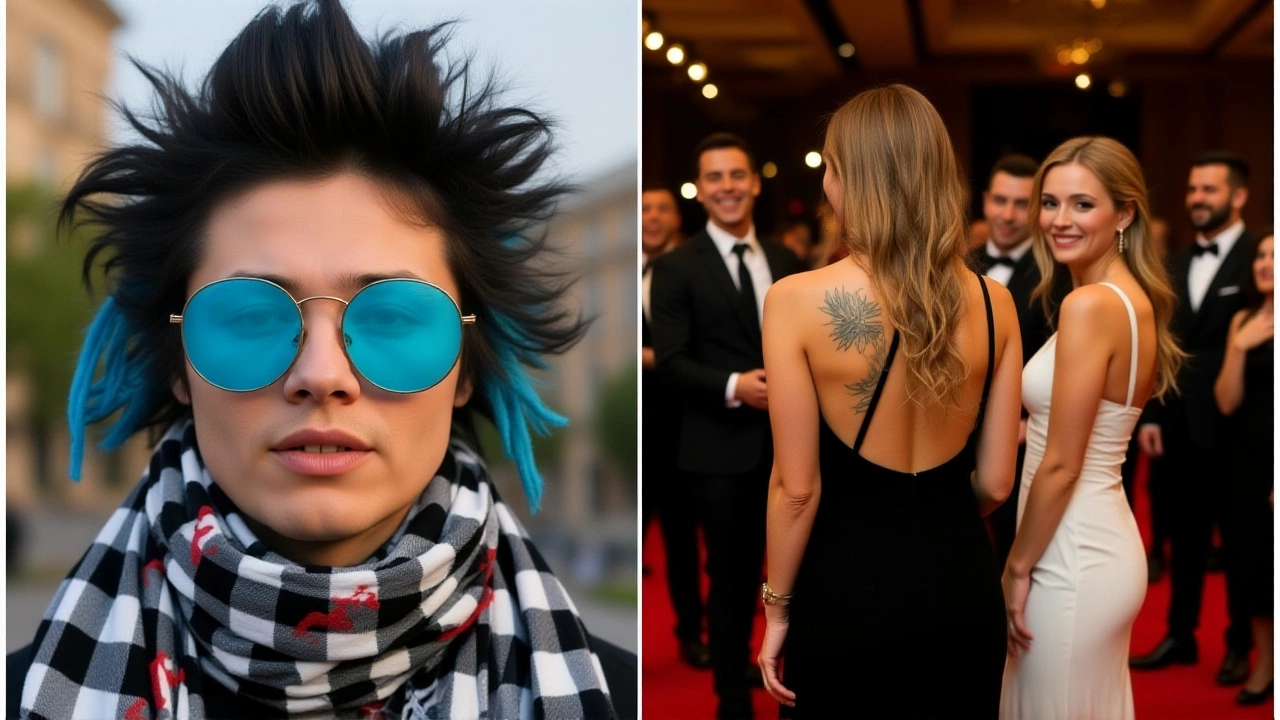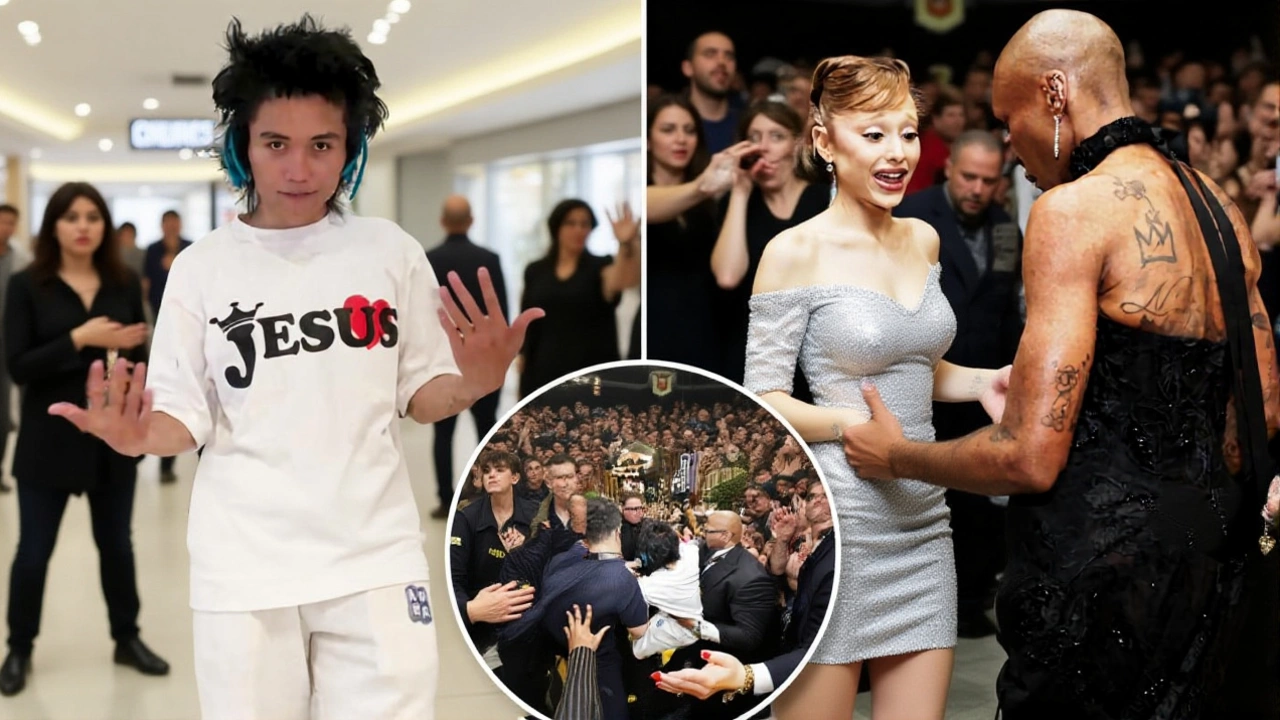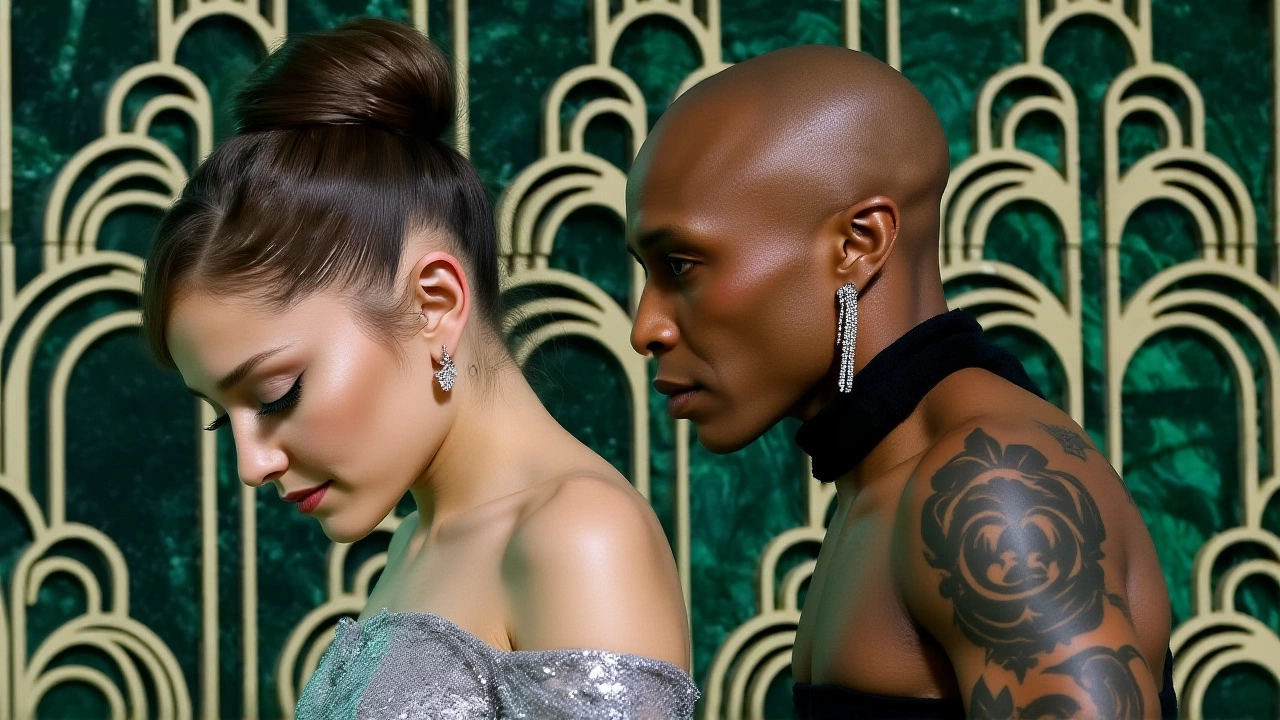When Johnson Wen surged past security and wrapped an arm around Ariana Grande on the red carpet at the Asia premiere of Wicked: For Good in Singapore, he didn’t just interrupt a moment — he shattered the illusion of safety that celebrities are often forced to perform under. The 26-year-old social media personality, known for crashing high-profile events, pleaded guilty to public nuisance on Monday and was sentenced to nine days in jail by District Judge Christopher Goh of the Singapore District Court. The sentence, though brief, carried a sharp warning: this wasn’t a prank. It was a pattern.
"You Think Only of Yourself"
Judge Goh didn’t mince words. He called Wen’s actions "premeditated," noting the defendant had done this before — at other celebrity events, in other cities, with other stars. "You seem to be attention seeking," the judge told him, "thinking only of yourself and not the safety of others." The courtroom fell silent as Goh added, "You should be mindful that there are always consequences for one’s actions." Wen, who reportedly jumped barricades and danced on the red carpet while clinging to Grande, didn’t deny it. He looked directly at the judge and said, "I won’t do it again. I’m going to stop getting into trouble." But the judge wasn’t convinced. His remarks suggested he saw Wen’s apology as performative — another bid for attention, not genuine remorse.What made this different from other celebrity intrusions? Timing. The premiere was part of a high-stakes promotional tour for Wicked: For Good, a film already generating serious Oscar buzz. Ariana Grande, 32, and co-star Cynthia Erivo were both considered frontrunners for Best Actress nominations. The incident didn’t just derail a photo op — it exposed the psychological toll of constant surveillance and unpredictable threats.
The Emotional Fallout
Grande and Erivo didn’t stay silent. In interviews after the event, both described the moment as "frightening." For Grande, who’s spoken openly about anxiety and trauma in the past, the intrusion wasn’t just invasive — it felt like a violation of hard-won personal space. Erivo, known for her disciplined approach to performance, said the incident added to a "cumulative stress" that had been building across weeks of global promotions.Security teams at the event — reportedly overwhelmed by crowds and social media influencers pushing past barriers — had no time to react. Wen moved fast. He was captured on multiple phone videos, grinning as he bounced beside Grande, waving at the crowd like he’d just won a contest. The footage went viral within minutes. But behind the laughter, there was terror. One attendee told reporters, "It felt like a horror movie. No one knew what he had in his pockets."
That’s the unspoken fear: what if he’d had a weapon? What if he’d pushed her? Singapore’s legal system doesn’t wait for the worst to happen before acting. Public nuisance laws here are strict, and the nine-day sentence, while short, was deliberately calibrated to send a message. The judge knew Wen had done this before — and knew he might do it again.

Why Nine Days? The Law Behind the Sentence
Singapore’s public nuisance statute allows for up to three months in jail and/or fines. But Wen’s plea deal and lack of prior criminal convictions likely helped reduce the penalty. Still, nine days isn’t a slap on the wrist — it’s a wake-up call. For comparison, in 2021, a man who rushed the stage at a K-pop concert in Seoul received a 10-day sentence. In 2023, a fan who tackled a pop star at a London show got six months of community service. Singapore chose jail. Why? Because Wen wasn’t a fan. He was a repeat offender with a social media following built on disruption.His online profile, according to local reports, features videos of him sneaking into award shows, fan meetups, and even corporate launches. He doesn’t ask for autographs. He doesn’t take photos. He invades. And he films it. His content thrives on chaos.
What This Means for Celebrity Tours
The Wicked: For Good tour has already visited Tokyo, Paris, and Dubai. Each stop has required tighter security, more personnel, and longer vetting for attendees. Studios are now reconsidering red carpet formats altogether. Universal Pictures and Marc Platt Productions haven’t commented publicly, but insiders say internal memos now advise: "No open barriers. No exceptions." For Grande and Erivo, the incident has added another layer to an already grueling promotional cycle. They’ve been doing interviews back-to-back, often with less than four hours of sleep. The fear isn’t just about physical safety — it’s about the erosion of dignity. As Erivo said in a recent podcast: "We’re not props. We’re not content. We’re people trying to do our jobs."
What’s Next?
Wen is expected to serve his sentence in a Singaporean remand center. There’s no indication of fines, probation, or civil lawsuits yet — but that doesn’t mean they won’t come. Grande’s legal team is reportedly reviewing options. Meanwhile, Singaporean authorities are reviewing whether to add Wen to a registry of individuals barred from attending public events featuring celebrities.The film’s release date remains unchanged — November 22. But the red carpet? That might be gone for good.
Frequently Asked Questions
Why was the sentence only nine days if public nuisance can carry up to three months in Singapore?
Judge Goh reduced the sentence due to Wen’s guilty plea and lack of prior criminal convictions, though he emphasized the premeditated nature of the act. Singaporean courts often impose lighter penalties when defendants admit guilt early, but this case was notable for the judge’s explicit warning about repeat behavior — suggesting future offenses could trigger harsher consequences, including longer jail time or a formal ban from public events.
How common are incidents like this at celebrity events in Asia?
Incidents of fans breaching security at Asian premieres have risen sharply since 2020, especially around K-pop and Hollywood stars touring the region. In 2022, a fan in Seoul tackled a BTS member; in 2023, a man in Bangkok stormed the stage during a Taylor Swift concert. What makes Wen’s case unusual is his documented history of similar acts — not just a one-time outburst, but a pattern tied to social media clout.
What legal consequences could Ariana Grande pursue beyond the criminal case?
Grande could file a civil suit for emotional distress or invasion of privacy, though she hasn’t yet. Singaporean law allows for damages in such cases, and her team may wait to see if Wen repeats the behavior. If he does, a lawsuit could seek injunctions, compensation for trauma, and possibly a restraining order. Legal experts say a civil case would be stronger if tied to documented psychological impact from the incident.
Why did Judge Goh mention Wen’s social media presence during sentencing?
The judge explicitly linked Wen’s actions to his online persona — suggesting the crime was committed for views, likes, and followers. This isn’t just about trespassing; it’s about monetizing chaos. In Singapore, courts increasingly recognize social media as a motive in public order crimes. Goh’s comment signaled that attention-seeking behavior, when it endangers others, will be treated as a serious threat — not a harmless stunt.
Is the red carpet becoming obsolete because of incidents like this?
Some studios and event planners are already moving away from traditional red carpets, especially in high-risk markets. Alternatives include controlled media zones, pre-recorded interviews, and virtual premieres. Universal Pictures has reportedly begun testing these formats for upcoming releases. The goal isn’t to exclude fans — it’s to separate admiration from intrusion.
What’s the broader cultural shift happening here?
There’s a growing global rejection of the idea that celebrities owe their time and space to fans. The internet once celebrated "unscripted" moments — now, people are realizing those moments often come at a human cost. This case reflects a turning point: society is beginning to demand accountability not just from the intruders, but from the platforms that reward them.

